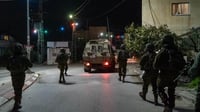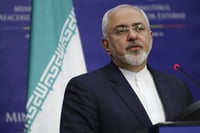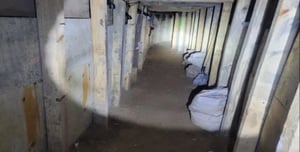
In response to recent targeted Israeli airstrikes that killed senior commanders, Hezbollah has shifted to low-tech methods to evade Israeli surveillance. This includes relying on landline phones, pagers, and couriers for communication, according to reports by Ynet news sources.
Hezbollah has also employed its own technological resources and drones to counter Israeli intelligence, aiming to "blind" Israel’s surveillance capabilities. The conflict intensified in October when Hezbollah’s Palestinian ally, Hamas, began its war with Israel.
While the fighting along Lebanon’s southern border has been relatively contained, recent escalations have raised fears of a broader conflict. The violence has displaced tens of thousands on both sides of the border, with Israeli strikes resulting in over 330 Hezbollah fighters' deaths and about 90 civilians in Lebanon, according to Reuters. Hezbollah, in turn, has confirmed the deaths of more than 20 operatives, including high-ranking commanders, due to Israeli strikes.
The Israeli Defence Forces (IDF) stated that their operations are in response to unprovoked attacks from Hezbollah, which began targeting Israeli positions following the Hamas attack on October 7. The IDF’s strikes are aimed at military targets, with efforts made to minimize civilian casualties. The effectiveness of these strikes relies heavily on precise intelligence regarding Hezbollah’s forces, leaders, and infrastructure. However, the IDF has not disclosed details about its intelligence gathering or Hezbollah’s counter-strategies, citing security reasons.
Electronic surveillance plays a crucial role in these operations. The IDF utilizes security cameras, remote sensing systems, and drones to monitor Hezbollah’s activities. Israel’s electronic eavesdropping capabilities, including hacking into phones and computers, are considered among the most advanced globally. In response, Hezbollah has adapted its tactics, moving away from cell phones in favour of older communication methods like pagers and direct delivery of messages by couriers. The group also uses a private fixed-line telecommunications network established in the early 2000s and employs code words for sensitive information.
Qassem Kassir, a Lebanese analyst close to Hezbollah, emphasized the importance of adapting to technological advancements by reverting to more traditional communication methods to avoid detection. Hezbollah's media office declined to comment on these reports.




























0 Comments